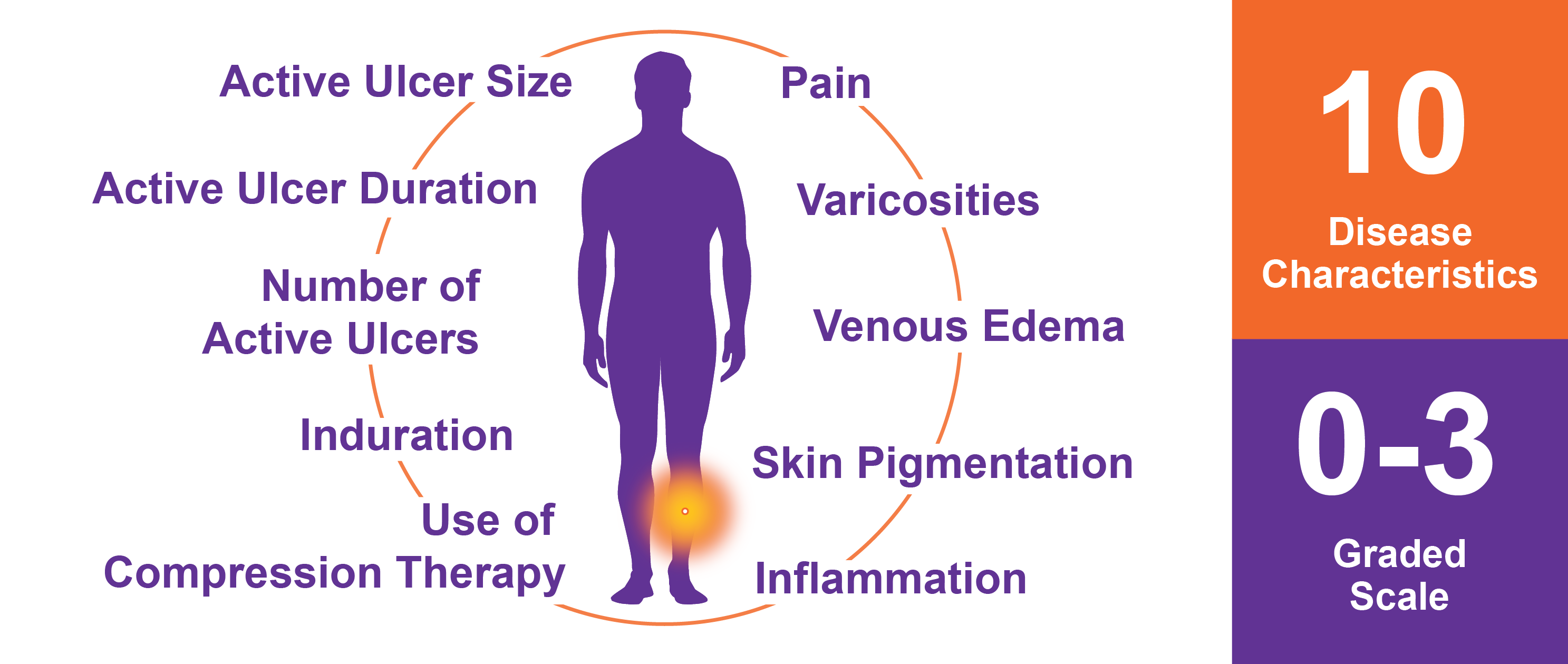Venous Clinical Severity Score (rVCSS)
The revised Venous Clinical Severity Score (rVCSS) is an objective grading system used by vascular specialists throughout the world to measure the severity of venous diseases, such as Chronic Venous Insufficiency (CVI), and to report clinical outcomes and responses to treatments for venous diseases. The revised Venous Clinical Severity Score (rVCSS) consists of patient and physician reported outcomes for ten venous disease characteristics that are graded from 0 to 3.
For the non-practitioner, as used in the VenoValve® pivotal trial, a comparison of a patient’s Venous Clinical Severity Score at baseline (Pre-VenoValve) to the patient’s rVCSS assessment at subsequent times (Post-VenoValve) provides an answer to the question – “Has the patient’s CVI improved?”
The rVCSS therapeutic goal for the VenoValve pivotal trial is a 3 point rVCSS improvement, when comparing baseline rVCSS assessments to subsequent assessments at 90 days, 180 days and 1 year post VenoValve implantation. A 3 point improvement in rVCSS for patients with severe CVI would be evidence of the VenoValve’s clinically meaningful benefit.


